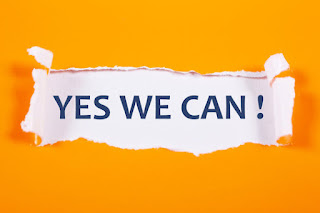Together, Yes We Can
In his book, “Abundant Communities” John McKnight tells a story about returning from a ten-day trip and stopping at a grocery store on the way home to buy produce.
But when he gets home, he discovers his garden has all of the produce he can eat right in his backyard.
Asset-based Community Development considers first the local talents and gifts in your neighborhood. It begins by looking at what is strong, not what is wrong in your neighborhood.
This begins by discovering what your community has and building on those talents and strengths. The odds are you have someone in your neighborhood who can fill any need.
For example, who do you know in your neighborhood that could teach a class on growing a garden? Would they be willing to teach neighbors if they are good at it?
Whom do you know that could teach others how to organize an event?
Whom do you know that could lead a neighborhood art project?
Whom do you know in the neighborhood that could host a gathering in their home or garage?
Too often, when we discuss getting a project done, we look outside of our neighborhood. But the truth is, talents are abundant in your neighborhood.
The key to unlocking those talents is getting to know your neighbors.
Sometimes, we decide what event or activity we want to do and assign jobs to people regardless of their talents or gifts. It would work better for everyone if we built events around the talents or gifts in our neighborhood.
If you or your organization, neighborhood or class needs a tangible example to learn this lesson, or you simply want to know more about asset-based community development, then Cormac Russell’s free “We Can Game” would be a great resource.
The “We Can Game” reveals hidden capacities in each of us.
This game reminds us that there are certain things only people and communities can do, and if we don’t do them, then no one else will.
I have used this tool with groups of neighbors before and can do that with other interested neighborhoods. The activity is an eye-opener as to all the things that are possible in your neighborhood.
If you are looking for ways to discover and unleash the talents in every community or group this game and the possibilities and connections it opens up are for you!
You can access the game instructions and download a PDF of the materials HERE.
###
Does this article make you interested in taking the Engaged Neighbor pledge? Five categories and 20 principles to guide you toward becoming an engaged neighbor. Sign the pledge online at http://engagedneighbor.com.
Contact the blog author, David L. Burton at dburton541@yahoo.com.





Comments
Post a Comment